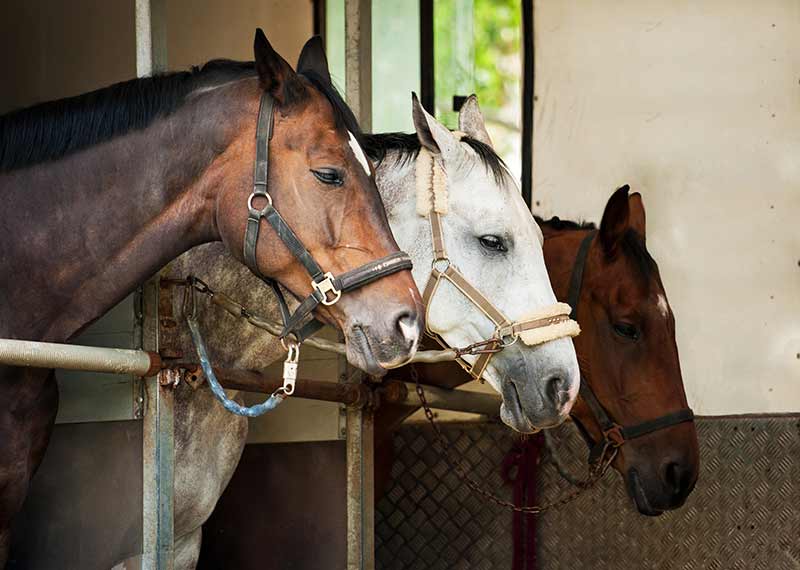
Worming your horse regularly should be of top priority as they are susceptible to a number of internal parasites ??? along with a number of species of worms. These worms can include strongyles, roundworms, tapeworms, pinworms and bots, all which can leave a devastating effect on horses if untreated. Petplan will take you through the different types of worms and what you need to know about worming and when it needs to be done???
Types of worms in horses
Although there are a number of parasites that can infect a horse, the main ones include:
Strongyles ??? which are found in the large intestines can penetrate the intestinal walls and travel to a number of vital organs and arteries. Young horses are the most vulnerable to strongyles, although all horses are at risk. Some of the major signs that your horse is infected by strongyles include loss of appetite, weight loss, fever, depression, weakness, anaemia, diarrhoea and death.
Roundworms ??? most commonly found in the small intestine and then migrate in to the blood circulation where they eventually end up in the liver and lungs of the horse. Roundworms will cause digestive upset to the horse and can damage the liver, lungs and small intestine which can lead to death.
Pinworms ??? form in the large intestine and rectum, irritating the horse and leading to them rubbing their tail and resulting in hair loss. Similar to strongyles, young horses are the most susceptible and symptoms can range from digestive disturbances to slow growth.
Bots ??? are the immature stage of the bot fly and are typically found in the mouth region of the horse at their early stages. After a number of weeks, they will then move down the throat and into the stomach where they will attach to the lining. In most cases, bots will cause damage to the stomach due to obstructing food flow; however in severe cases they can cause stomach rupture.
Tapeworms ??? are extremely vicious as they attach to the intestinal lining of the horse and damage the tissue as well as steal their nutrients.
How often should I worm my horse?
All farms are different, and depending on the horse???s age and how many times they are moved on and off the property the amount of times you need to worm them can change drastically. By working with your vet to create a worm management plan, you will have the best opportunity to keep your horse worm free and healthy all year round.
Horses that are at greater risk will need a much more strict management plan in order to get on top of the situation before anything occurs. Some horses will need to be wormed every 6 or so weeks, while all horses should be wormed at least every 3 months, depending on their situation.
Along with creating an effective management plan, supplying the horse with clean water, high quality feed, and removing manure regularly are the best ways to lessen the chances of parasites infecting your horses.


